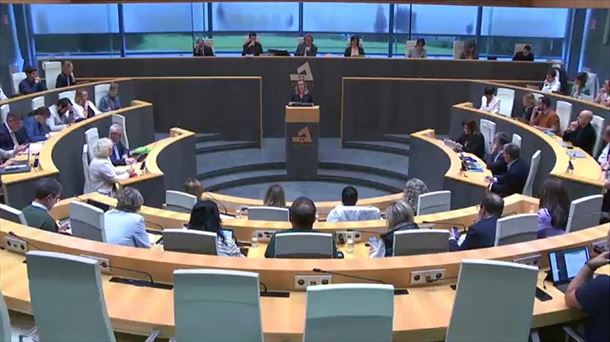On Wednesday, the federal government launched an aid package worth around 300 million euros for agriculture and forestry. The intention is that farmers will receive a relief of about 20 cents per liter of diesel, but also area-based support in 2024 and financial incentives for investments in animal welfare-friendly stables.
Apart from the diesel engine, there are currently no alternative drive options in agriculture, Totschnig explained the support for diesel. CO₂ pricing has no guiding effect in this sector, but only constitutes an additional burden.
Operating and fuel costs currently remain at a high level, but at the same time farmers’ incomes are declining, Agriculture Minister Norbert Totschnig (ÖVP) said in the press foyer after the meeting of the Council of Ministers. It is about guaranteeing a sustainable food supply.
A total of 209 million euros will be made available for agricultural diesel by 2024. This should result in a tax reduction of 20 cents per liter of diesel, consisting of a tax reduction and the refund of the CO₂ price. In detail, the CO₂ pricing compensation for the years 2022 to 2025 amounts to 134 million euros. According to the Ministry of Agriculture, another 75 million euros will be available for agricultural diesel compensation from the second half of 2023 to the end of 2025.
In addition, 50 million euros have been reserved for a soil management contribution and a package of special funds for greater animal welfare in 2024, Totschnig said. To make the transition to more animal-friendly farming particularly attractive, the emphasis must be on pig farming.
Decision at the next plenary meeting
According to Totschnig’s office, the implementation of agricultural diesel should be submitted to the National Council via an amendment on Wednesday and decided at the next plenary session. The CO₂ compensation should also be done via an amendment; the decision is therefore already on the agenda for Wednesday’s plenary meeting.
Farmers’ incomes fell in 2023
By 2023, agricultural incomes will have fallen – after a very high increase in the previous year. Factor income per employee fell by 21.5 percent in real terms in 2023 compared to the previous year, the Austrian Statistical Office said. According to the ‘Green Report’ – which shows companies’ average earnings – declines of five to 15 percent were recorded between 2012 and 2015, before profits rose by just over 10 percent in 2016 and 2017. After another negative point in 2018, a phase of stagnation followed and in 2021 there was an increase of 15 percent for the first time. Due to higher producer prices, there was a strong increase of 42 percent in 2022.
Source: Krone
I am Ida Scott, a journalist and content author with a passion for uncovering the truth. I have been writing professionally for Today Times Live since 2020 and specialize in political news. My career began when I was just 17; I had already developed a knack for research and an eye for detail which made me stand out from my peers.



